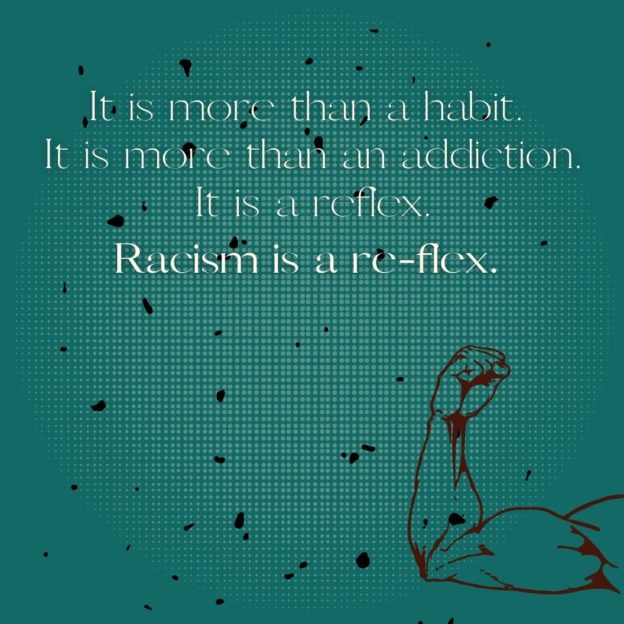“Ope, let me just scooch past you!” I exclaimed, brushing past someone on the path as I hiked with my family. Sometimes, I recognize my Midwest upbringing sneaking back in to my language. I have only been in Colorado for three months, after all. Certainly, not long enough to significantly shift my go-to language or my accents.
I was tagged recently in a thread about the prevalence of racism, of white supremacy, in our society and culture. In us. In me. The post happened to be to an audience significantly comprised of survivors of abuse.
Comment after comment after comment.
“I’ll pass on this corporate guilt tactic.”
“Love is the answer.”
“White people are shamed daily and forced to apologize for their heritage.”
“I don’t need yet another person undoing the great work I have done for years finding my worth and moving away from being defined by others telling me how bad I am.”
Each comment reacting in defense holding a grain, or in many cases, logs, of white supremacy. I would like to address specifically, though, the repeated common thread of those previously abused “discarding” further abuse of being told they are “bad.”
Being abused, past or present, is not a closed loop. Being abused does not exclude me from being an abuser.
How else am I supposed to recognize where I am doing the same harm I experienced *to someone else* if I decide that someone telling me that I am harming them is equivalent to my being abused?
I am absolutely, not astonished, but livid at how fast even those who have experienced abuse (I include myself here) grasp at any straws of power…as if that somehow erases my own experience of being abused.
Y’all. Saying you are victimized by someone pointing out CULTURAL ABUSE (of which we are all a part of) is using victim status or abused status as a power play. Never mind the gaslighting of an abuser telling the abused that they (the abuser) are the ones being harmed.
You know how everyone in the Midwest says *ope*? Or how accents are prominent in certain geographic locations?
Racism is America’s accent.
That is an observation. When a communication researcher observes patterns of speaking among groups of humans, that is not an attack. Unfortunately, in the case of racism, this “accent” is harmful.
And the real kicker?
Even if you move away, the accent still lurks. When you get angry. When you are back in comfortable settings. When you are tired.
It is more than a habit. It is more than an addiction.
It is a reflex.
Racism is a re-flex.
This accent is all about power. The only way to catch a reflex is to be prepared in advance to mitigate it. But, of course, that means acknowledging it. So that you can hear it. See it. Catch it. And stop being the abuser.
Ope.
Join us in the Bistro for discussion of this post.

Leave a Reply